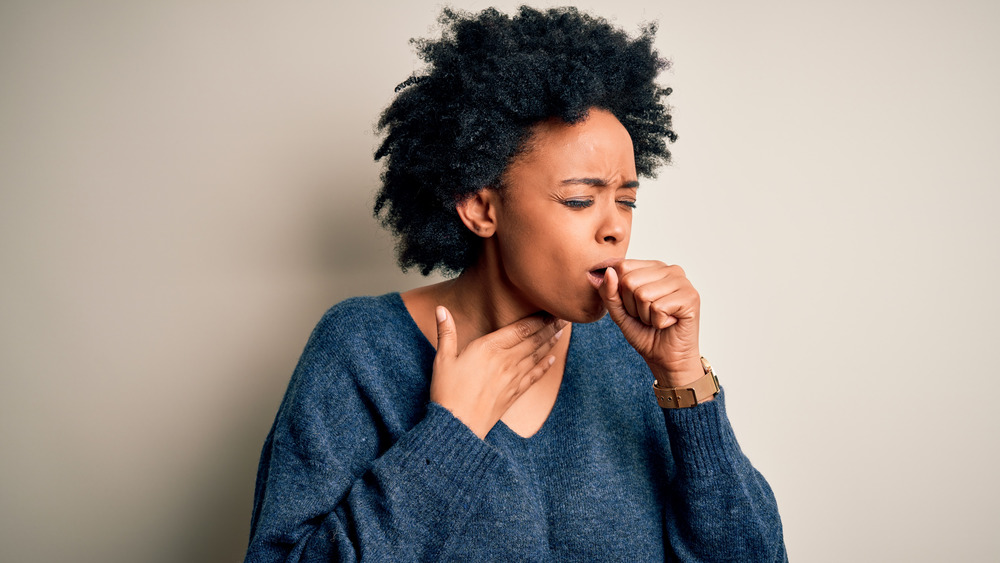What Does It Mean When Food Goes Down The Wrong Pipe?
You're enjoying a meal or snack when suddenly the food goes down the wrong 'pipe,' and you start coughing. It's scary and annoying at the same time. If you're enjoying your food with others, you'll say your food went down the wrong pipe because they're usually concerned you're choking. It's a fast and easy way to explain you should be fine in a minute. But what is really happening?
Medically, it's called aspiration, according to the Cleveland Clinic. You have two 'pipes' in your throat — the trachea (windpipe) and the esophagus (food pipe). When you're done chewing, you move the food to the back of your throat to swallow it. An automatic process involving your vocal cords closes off your trachea so food or a drink or saliva can safely go down your esophagus, where it will then move to your stomach. That's why you can't talk or breathe for the moment it takes to swallow, and if a bit of your food slips in, your body makes you start coughing to get it out of your trachea.
However, if the piece of food is big enough and you can't move it, you now have a blocked airway and you're definitely choking. The first aid for choking is the Heimlich maneuver (via Mental Floss).
How your body reacts to food going down the wrong pipe
Aspirating causes you to go into fight or flight mode, making your adrenaline kick in, increasing your heart rate and blood pressure. Everything goes back to normal after you quickly expel the food out of your lungs by coughing. If that doesn't happen, your body will react to the aspiration with reduced oxygen levels, fever, and possibly pneumonia or bronchitis, which will require immediate medical attention, according to the Cleveland Clinic.
If your food doesn't come out right away, stay calm. Lie on your stomach with a cushion under your hips to tilt your trachea slightly downward, which will help aid the food or liquid out.
Get immediate medical attention if you're still coughing two hours after or if you start coughing up blood. Keep an eye on your symptoms. Watch for stabbing chest pain, cough with discolored mucous, chills, or a fever. These symptoms may lead to pneumonia or bronchitis.
If this happens to you often, you might have a vocal cord disorder, swallowing disorder, or neurological disorder. See your doctor, who will perform an x-ray swallowing study to determine the cause. The elderly might have this problem due to Parkinson's or a previous stroke.


